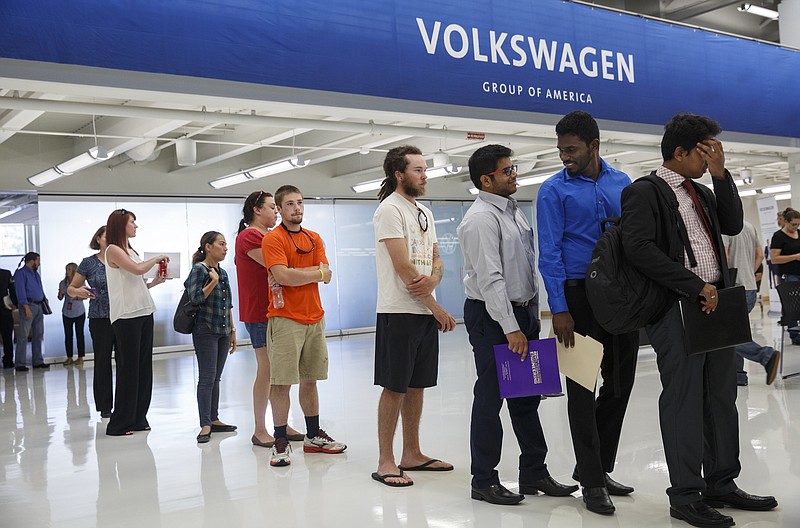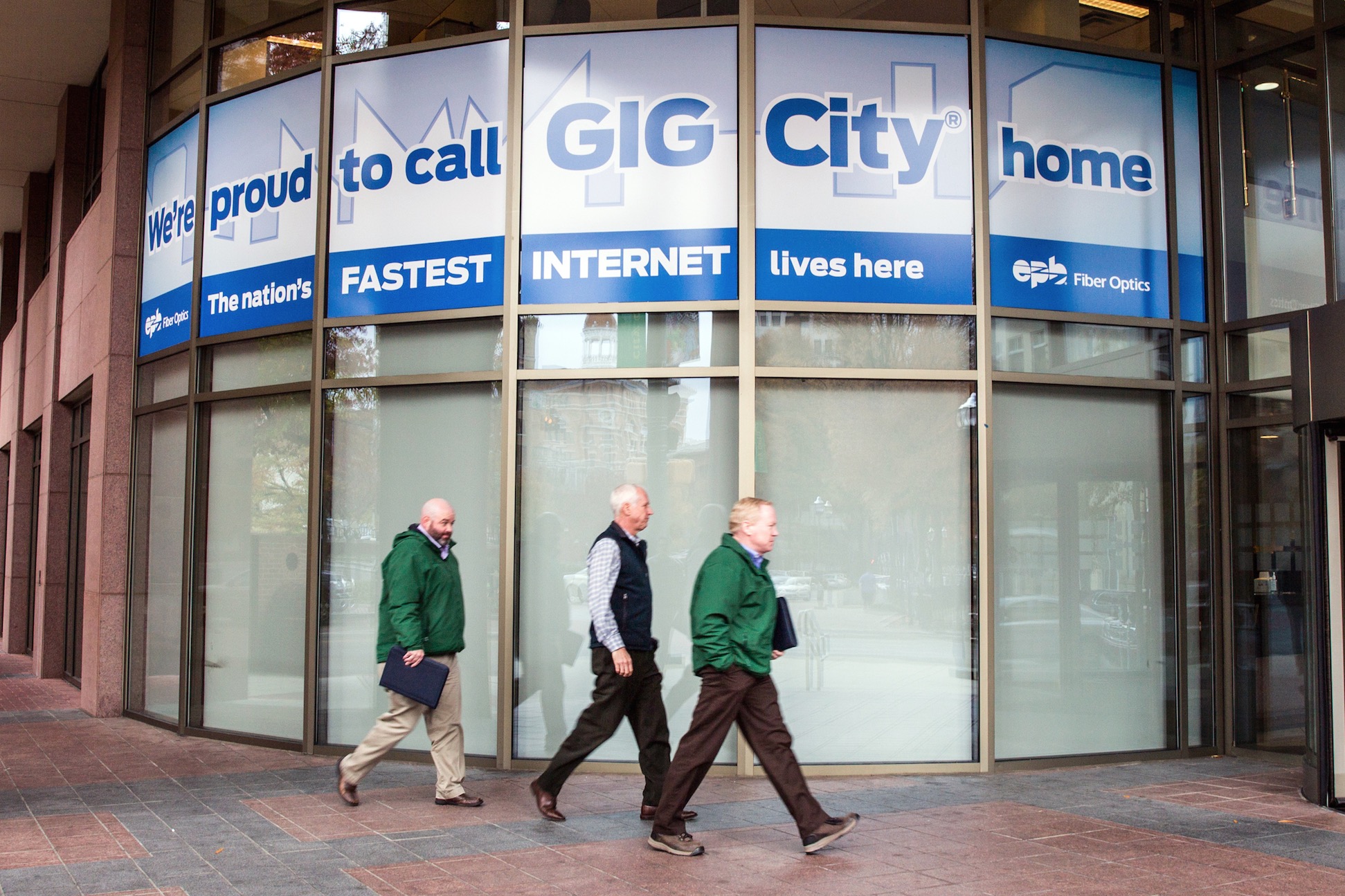The growth of Volkswagen and the entrepreneurial economy in Chattanooga helped make the self-described "Gig City" one of the most improved metro cities in America this year, according to a new ranking of American cities based upon job and income growth and technology prowess.
Most improved metros
1. Daytona Beach, Fla.2. Richmond, Va.3. Toledo, Ohio4. Chattanooga5. Rockford, Ill.Source: The study by Milken Institute Center for Jobs and Human Capital ranked the 200 largest metro markets in the United States based upon job creation, wage gains and technology developments.
Best metros
1. San Jose, Calif.2. Provo, Utah3. Austin, Texas4. San Francisco5. Dallas6. Raleigh, N.C.7. Nashville8. Fort Collins, Colo.9. Orlando, Fla.10. SeattleSource: The study by Milken Institute Center for Jobs and Human Capital ranked the 200 largest metro markets in the United States based upon job creation, wage gains and technology developments.
2016: Business in review
Today * Employment shift: Legacy businesses cut jobs, others grow. Thursday * New leadership: Who are the new heads of area businesses?Friday * Major investments: What were the biggest deals of the year?Saturday * Bull market: Stock market gains for the year.Sunday * 2017 outlook: Chattanoogans upbeat about new year.
The Milken Institute, an independent economic think tank based in Santa Monica, Calif., said Chattanooga was the fourth most improved metro area among the 200 largest metro cities included in its 2016 ranking of Best Performing cities.
Chattanooga improved from being in the bottom quartile of cities in Milken's 2015 ranking up to a mid-level ranking this year. Chattanooga jumped from 154th in 2015 to 101st in 2016 among the 200 largest metro areas.
The improving automotive industry helped drive much of the gain for Chattanooga and also helped push Nashville into a top 10 position among all metro cities for the first time in the Milken Institute ranking.
Tennessee is home to three major automobile assembly plants - Volkswagen in Chattanooga and Nissan and General Motors in metro Nashville. Last year, the three auto assembly plants produced 735,511 cars, light trucks and SUVs. More than 118,000 workers are directly employed in Tennessee's automotive sector - one third of all manufacturing jobs - at 930 locations across the state.
"A lot of the improvement [in Chattanooga's ranking] came from Volkswagen and the entire automotive supply chain," said Ross DeVol, chief research officer of the Milken Institute and one of the report's authors.
"The new engineering jobs at VW and many of the mid-wage manufacturing jobs there as well as all of the automotive supply employment coming in Tennessee helped to create jobs and boost income," DeVol said. "Because of the automotive expansion, the mix of the jobs being created tended to be higher-paying, so that has a larger multiplier impact on the general economy."
Chattanooga also benefited from its growing logistics businesses and its emerging entrepreneurial economy, nurtured by the state's biggest business incubator on the North Shore and major business accelerators for startup businesses at The Company Lab, the Lamp Post Group and the Chattanooga Business Development Center, among other players.
Many of the start-ups are benefiting from Chattanooga's first-in-the-country gigabit-per-second internet speed offered across the region by EPB, and by the Innovation District created by Mayor Andy Berke last year. The Oak Ridge National Laboratory, the biggest of the Department of Energy's research facilities, is opening an office in the Innovation District to help Chattanooga commercialize on the technologies developed in Oak Ridge.
"Longer-term, I think that portends very positive news for the area," DeVol said.
The Milken Institute has ranked U.S. cities for their economic performance since 1999 using an outcomes-based measurement that inclues growth in employment, wages and technology output.
The ranking does not include cost-of-living or subjective quality-of-life conditions, which tend to keep metro areas such as Chattanooga with below-average income below the U.S. average. Last year, for instance, the median household income in Chattanooga was $47,809, or 14.3 percent less than the U.S. median household income of $55,775 in 2015.
Chattanooga has a lower cost of living, less expensive energy and taxes and a mild weather climate and favorable scenery and outdoors appeal - none of which are measured directly in the Milken Institute research.
In the Milken rating of best performing cities, tech is still tops, with San Jose, Calif, home of Silicon Valley, rated again this year as the No. 1 metro area.
"America's best- performing cities yet again demonstrated their innovation advantage aligned with high levels of entrepreneurship," said DeVol. "That is witnessed not just in 'traditional' technology but in medical and financial services."
Cities with major research universities did the best, including Provo, Utah; Austin, Texas; and San Francisco. But DeVol said Chattanooga may be positioning itself to move up in its economic rankings if it is able to tap into the research of the nearby Oak Ridge National Laboratory and continue to grow and recruit businesses eager to use or test technologies in a citywide fast- internet market.
Contact Dave Flessner at dflessner@timesfreepress.com or at 757-6340.

